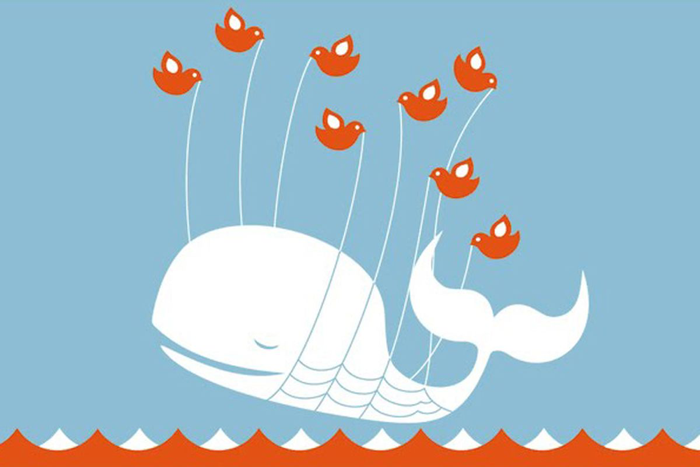Kindle 2 and the publishing revolution

Everyone’s talking about Kindle 2. To those outside the industry this must sound as opaque and mysterious a revolution as Vatican 2. [My only reference for that is The Thornbirds, which you can now buy as a Kindle edition].
The Kindle 2 is the next generation of Amazon’s wireless e-book reading device, and it started shipping yesterday. If you’re in the USA, that is. Amazon have confirmed that it will launch internationally – we just don’t know when. The device does work outside the US – but the wireless network it uses isn’t compatible with European telecoms.
Despite that, is this, finally, the iPod moment we all keep talking about? Many observers see this as yet another incremental step, rather than a tipping point – largely because the price tag (still $359) keeps it out of the mainstream. But take-up of the Sony Reader in Europe, plus the reading of e-books on the iPhone, seem to indicate a gathering of momentum at least. My money is on the iPhone proving to be the iPod moment – but we shall see.
The other trend to keep an eye on this year is the impact the Kindle will have on self-publishing. I know several authors who are ‘writing for the Kindle’ – self-publishing e-books specifically for the Amazon device. The Kindle is just another tool that facilitates the increasing move to authors doing it themselves. Self-publishing remains my key trend for 2009.
While many traditional publishers panic about keeping up with the tech, or how to price their e-books, the real revolution is happening over there, just out of sight – and could have a more profound impact on the publishing business than simply the format people choose to read books in.
An recent article in Computer World sums it up well:
The book publishing industry is one of the most backward, musty, obsolete businesses in our economy. While every other kind of information moves at the speed of light, the process of publishing a book is like something from the Middle Ages.
For authors, it can take months to even find a literary agent willing to represent their work. Then the agent takes months to find a publisher. Then it takes ages for the publishing company to get the book out there.
People are already circumventing all this by self-publishing. The self-publishing industry is the only area of paper-book publishing that’s thriving right now. Soon enough, a huge number of authors are finally going to get fed up with the publishing industry and just self-publish electronically. They’ll hire their own freelance editors, and do the marketing themselves. The publication of a finished manuscript will take minutes, rather than months.
Should publishers be worried by this? We all know that, by the time you’ve finished eating that cookie, you’ll remember that you don’t believe in all this publishing revolution stuff anyway, and go back to your paper peddling day job. And you can cheer yourself up with this video.
This is what we all really want to see: Jon Stewart interviewing Jeff Bezos, promoting the Kindle’s USP of one-handed reading. Visionary disruptive innovator or chuckling maniac? You be the judge.
Related articles
- Tips on How to Write an Amazon Kindle Book (kindlereaderreview.com)
- Stephen King Helps Amazon Launch New Kindle (Guardian, 9 Feb 09)
- The Revenge of Amazon.com’s ‘Chuckling Maniac’ (gawker.com)
- Doing the Math on a Amazon Kindle (puhala.com)
- Elgan: Here comes the e-book revolution (Computer World, 7 Feb 09)
- Kindle and eBook Formats (loo.me)
See also
- Joe Wikert’s Kindleville blog

![Reblog this post [with Zemanta]](http://img.zemanta.com/reblog_e.png?x-id=303a6922-650f-4326-b382-8a8c33df690e)

Hi John,
You are right on with the trends you mentioned here. I see ebook sites exploding with a new one emerging on the net almost daily.
Traditional publishers are stuck in the Middle Ages and unless they fast forward to the future, they will eventually vanish being replaced by ebook sites and print on demand publishers.
Take a look at my take on the Kindle at http://writersedgeinfo.blogspot.com/2008/10/will-oprah-make-kindle-bestseller.html
Will Oprah Make the Kindle a Bestseller?
I got my grandmother a kindle, and she loves it. She loved it so much she got my grandfather one!
I’ve dropped my Kindle a few times already (not on purpose of course) and it seems to be working without a hitch; so they’re durable at least
Publishers publish books; printers print publishers’ books; they are very distinct industries. It’s really not that big a change for publishers to have their books ‘printed’ so to speak in e-book form on various devices. Most publishers should eventually do fine in this period of change, but feel sorry for printers.